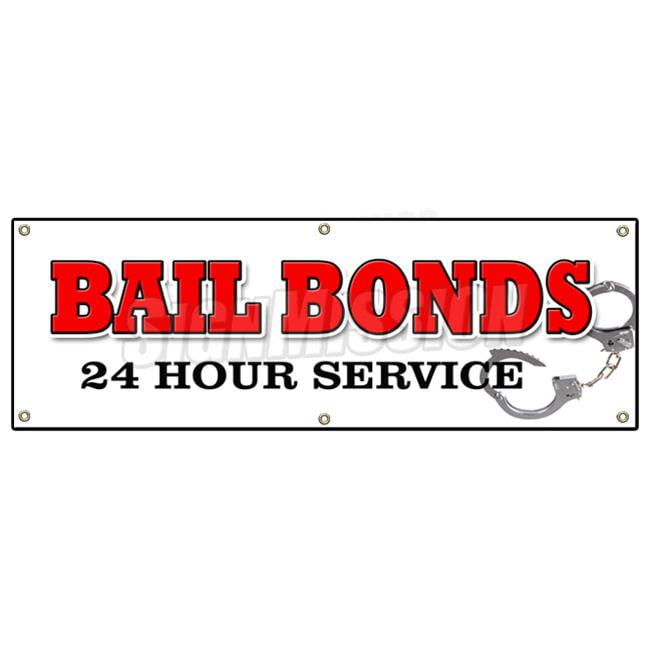Browsing the Legal Puzzle: Bail Bonds Explained for Beginners
Navigating the complexities of the legal system can often seem like going across a complicated puzzle, particularly when it concerns understanding Bail bonds. For beginners entering this unknown terrain, understanding the ins and outs of Bail bonds is crucial in guaranteeing a enlightened and smooth process. From the essentials of just how Bail bonds function to the various kinds readily available, each aspect plays an important role in facilitating the launch of people waiting for trial. As we dive much deeper right into this subject, clearness will certainly be lost on the bail bond procedure, the linked expenses, and useful tips for successfully engaging with Bail bondsmen.
Fundamentals of Bail Bonds
Comprehending the essential principles of Bail bonds is necessary for navigating the lawful procedure successfully and properly. Bail bonds act as a financial assurance that an accused will certainly appear in court as needed. When an individual is detained, they might be approved the possibility to post Bail in order to secure their release till their court date. If the person can not afford the full Bail amount set by the court, a bail bond agent can be gotten to supply the needed funds on their behalf.
Basically, a bail bond is an agreement between the defendant, the court, and the bail bond representative. The agent concurs to pay the full Bail amount if the accused stops working to show up in court, in exchange for a non-refundable fee typically set at 10% of the total Bail.
Kinds of Bail Bonds
Different classifications of Bail bonds are offered to accommodate different financial scenarios and lawful circumstances. One of the most common type is a money bond, where the accused or a relative pays the complete Bail quantity in money. This quantity is reimbursed as soon as the offender satisfies their legal obligations. An additional alternative is a surety bond, where a bondsman pays the Bail in support of the defendant for a fee, usually around 10% of the complete Bail amount. In cases where cash money or property is hard to come by, a residential property bond can be utilized, permitting the defendant to utilize their possessions as collateral. Immigration bonds are particularly for individuals restrained by Migration and Customs Enforcement (ICE) and can be rather intricate due to government policies. Lastly, a launch on recognizance (ROR) bond is granted based on the accused's guarantee to show up in court, with no sponsorship called for. Comprehending these various kinds of Bail bonds can aid individuals browse the lawful procedure better.
Bail Bond Refine Discussed
If the defendant can not pay for the full Bail quantity, they can look for the services of a bail bondsman. The offender or their liked ones pay the bail bondsman a non-refundable charge, generally a percent of the overall Bail quantity, to protect a bail bond.

Recognizing Bail Bond Costs
Upon safeguarding a bail bond with a bail bondsman, individuals run into a necessary facet of the lawful procedure: the economic responsibilities tied to the bail bond. Bail bond prices normally entail a non-refundable cost, typically around 10% of the total Bail quantity established by the court.
Along with the premium, collateral might be needed to safeguard the bail bond. Collateral can be in the form of property, valuable possessions, or a co-signer who guarantees repayment if the defendant misses Bail. The collateral acts as a back-up prepare for the bail bondsman in situation the offender absconds.
It's essential for individuals looking for Bail bonds to totally recognize the costs involved and the terms of the contract prior to proceeding. By being informed regarding bail bond costs, individuals can navigate the legal procedure better and make educated choices.
Tips for Functioning With Bail Bondsmen

Furthermore, it's vital to offer exact details regarding the offender and their instance. This consists of information such as their full name, day of birth, the location of their arrest, and check here the costs they are dealing with. bail bond agent dayton ohio. Offering insufficient or wrong information can result in delays in the bail bond process

Conclusion
Finally, understanding the basics of Bail bonds, the different kinds readily available, the procedure entailed, and the prices connected with them is vital for navigating the lawful system. By working with Bail bondsmen and complying with these pointers, people can guarantee a smoother and much more reliable Bail procedure. When dealing with Bail bonds to stay clear of any unneeded issues or misunderstandings., it is critical to be informed and well-informed.
Basically, a bail bond is an agreement in between the accused, the court, and the bail bond agent. One more alternative is best site a surety bond, where a bail bondsman pays the Bail on behalf of the offender for a cost, usually around 10% of the complete Bail amount. The accused or their liked ones pay the bail bondsman a non-refundable cost, usually a portion of the complete Bail quantity, to safeguard a bail bond.Upon safeguarding a bail bond via a bondsman, people experience an important facet of the legal process: the economic obligations tied to the bail bond. Bail bond expenses commonly involve a non-refundable fee, normally around 10% of the total Bail quantity set by the court.